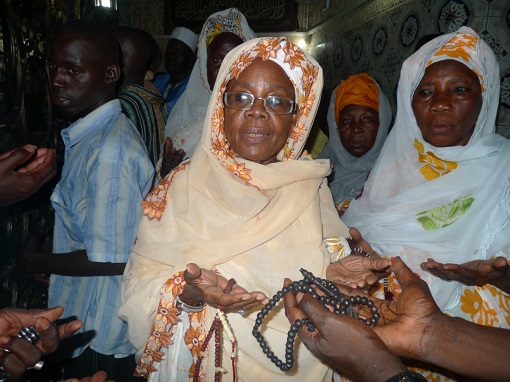Public Lecture: Muslim Women’s Interpretive Authority Reconsidered: Everyday interpretation among female Islamic leaders in Senegal

Insider and outsider accounts often depict Muslim women as objects of, not originators of, Islamic textual interpretation. Recently, feminist scholars have documented how centuries of Islamic textual traditions have deprived women of exegetical authority. While acknowledging this general trend, this presentation by Joseph Hill (University of Alberta) demonstrates how an ethnographic approach can complicate this picture. It focuses on female leaders in the Fayḍa Tijāniyya Sufi community in Senegal who swiftly - and strikingly uncontroversially - took on visible leadership roles starting around 2000. Dr Hill's previous explanations of this phenomenon downplayed textual debates in favour of observing how people subtly reconfigure established norms to accommodate changing social realities. Still, as he shows here, exegesis of the Quran and other texts remains an important means for women to justify, understand, and shape their authority. Understanding today’s broader religious and social changes requires looking beyond the few interpretations that get recorded in the formal exegetical literature to observe gendered exegesis as a daily social activity in which diverse players interpret authoritatively in day-to-day encounters.
This lecture is the public keynote of the workshop 'Global and Local Political Debates over Women’s Rights, and Everyday Life in Muslim Africa’ (21-22 September), jointly organised by the CRGs ‘Collaboration and Contestation in Words’ and ‘Africa in the World’.
Please register for this lecture by sending an email to Mayke Kaag.
Photo: Sufi leader Shaykha Ruqayya (cropped). Photo by the speaker.
Speaker
 Dr Joseph Hill's fieldwork in West Africa, especially Senegal and Mauritania, focuses primarily on Islam - and specifically Sufi (spiritualistic or mystical) Islam - and its place in contemporary society, politics, and culture. Conceptually, he is interested in how significant religious and social changes are made to seem natural through new performances of religiosity that reconfigure prevalent norms, mediating change with little open debate.
Dr Joseph Hill's fieldwork in West Africa, especially Senegal and Mauritania, focuses primarily on Islam - and specifically Sufi (spiritualistic or mystical) Islam - and its place in contemporary society, politics, and culture. Conceptually, he is interested in how significant religious and social changes are made to seem natural through new performances of religiosity that reconfigure prevalent norms, mediating change with little open debate.

